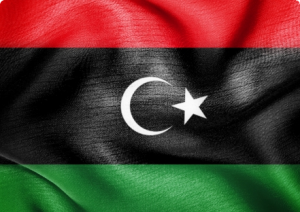Following the ousting of Colonel Muammar Gaddafi, oil production has resumed – and rapidly. Libya’s re-entry into the world oil market has recommenced in an astonishing way, exceeding expectation, and causing experts to re-assess Libya’s capabilities. Opinions vary on the final trajectory, but the pace at which Libya is getting back on track is indisputable.
During the bloodiest period of the Libyan uprising, production reportedly plummeted to just 10,000 barrels per day (bpd). As recently as September, predictions pointed to the production of just 400,000 bpd by the end of this year and in November, pre-war levels were estimated to be reached only by the end of 2012. According to the head of OPEC, Abdullah El-Badri, however, these will now be achieved by mid 2012 - an opinion also supported by that of the CEO of Total SA, Christophe de Margerie.
Renewed participation from IOCs will be required if Libya is to return to the full output capacity predicted. As Libya regains stability, companies are looking to secure tenders they had obtained prior to the uprising. NTC officials have repeatedly stated that they will honour all existing contracts, while also promising to investigate those secured through corruption. There has been much debate surrounding ambiguous statements made by the NTC; earlier this year they had promised to reward countries like France and Britain who supported the liberation with oil contracts, but have more recently affirmed that contracts would be awarded on a merit-only basis.
If Libya wants to encourage exploration and production by IOCs, they will have to issue added incentives to make investment more appealing. The revenue is currently split 90:10 for the government and oil companies respectively, and one analyst predicts that this figure will need to be closer to 70:30, if Libya has any hope of attracting the international investment it needs.
It is vital that production is ramped up as quickly as is possible, as the country’s economy relies primarily upon revenues from the oil sector. During the Gaddafi era, Libya enjoyed one of the highest per capita GDPs in Africa, as a result of its extensive oil revenues and small population of 6 million, but little of this wealth filtered down to the lower tiers of society. How the new government addresses this in the future will be anxiously anticipated by all Libyans.
The new Libyan government must understand that they cannot rely solely on revenue from oil, and must consider alternative ways of accumulating finance. Libya possesses Africa’s largest oil reserves, but is also sitting above one of the largest fossil water aquifers in the world, the Nubian Aquifer. It covers some two million square km of land and is thought to contain as much as 500 years of the Nile’s flow. It shares this with Chad, Sudan and Egypt.
In 1983, Muammar Gaddafi instigated a huge civil water works project, known as the Great Man-Made River (GMMR), which extracted water from the various underground basin reserves such as the Nubian Aquifer, and delivered more than 5 million cubic metres of water daily to the coastal towns. The GMMR is reported to provide 70% of the Libyan population with water for drinking and irrigation.
Patrick Henningsen, 21st Century Wire editor and founder suggested to IPS that “Libya could start an agro-business similar to California's San Joaquin Valley. Like Libya, California is essentially desert but because of irrigation and water works projects that desert valley became the largest producer of food and cotton in the world, making it the ninth largest economy in the world,"
"At the moment the only agro-markets in the Mediterranean zone competing to supply citrus and various other popular supermarket products to Europe are Israel and Egypt. In 10 or 20 years, Libya could surpass both of those countries because they now have the water to green the desert."
In addition to its water and oil resources, Libya should also market itself as the future hotspot for tourists. The sunny climate, proximity to Britain, golden beaches and Roman ruins, are all big pull factors. Airlines like EgyptAir, Qatar Airways, Air Malta and Emirates, are all predicting a business and tourist boom over the next few years, and are increasing flights to Benghazi and Tripoli accordingly.
Libya has some tough decisions to make in the future; a tourist industry will struggle to flourish if the strict dress code and ban on alcohol continue to remain. With the militia still fighting, a booming industry seems to be a long way off, but Libya shows great promise.
By Siobhan Young, Consultant for Upper Quartile LLP. Any opinions expressed are those of the author, and do not necessarily reflect the views of Libya Business News





